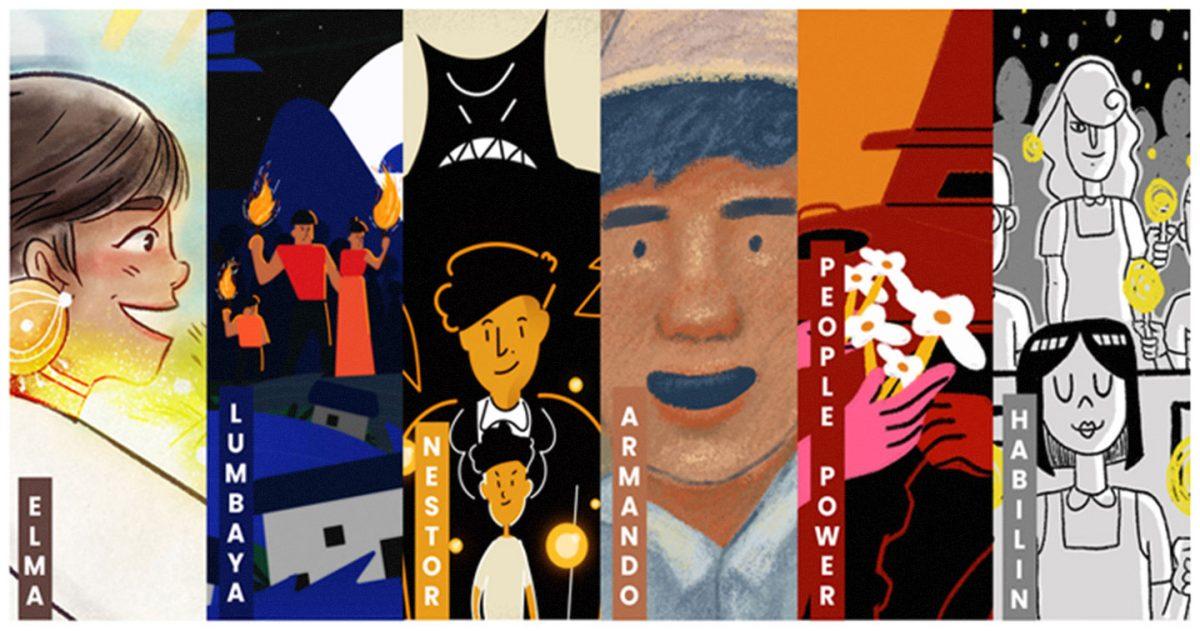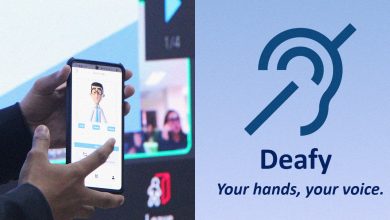MANILA, PHILIPPINES — Forty-nine years after the declaration of Martial Law, some people are still having trouble talking about this massive event in our history. Spanning over a decade, the Marcos dictatorship plunged the country into overwhelming debt, countless human rights violations, and consequences that are still being paid for today and for generations to come. But how do we begin to talk to kids about Martial Law?
Enter “Habilin”, a 12-part podcast and animated series about the heroes who fought for our freedom, produced by The Commission on Human Rights of the Philippines, Sandigan Para sa Mag-aaral at Sambayanan (SAMASA), and the Give a Hoot podcast.
The unsung heroes
Through thoughtful storytelling, eye-catching animation, and immersive sound design, each episode available in both video and podcast formats shares the stories of ordinary Filipinos who stood up for their rights and empowered others.
Sister Mariani Dimaranan, Lazaro Silva, and Lumbaya Gayudan are some names kids might not be familiar with, but in two minutes, they can hear about their moments of awakening and their heroism.
Elma Tangente was a “binukot”— a young Visayan noblewoman chosen by her tribe to be sheltered from the public eye. But after they were forced out of their land by the military, she joined the guerilla movement and became a principal organizer, bringing together different communities against the dictatorship.
She gave up her binukot status and went to a school run by student activists, where she learned to read and write and became interested in social issues. She realizes that the true meaning of being a “chosen one” is to empower her community.
Another episode features Nestor Principe, karate instructor and community organizer. Nestor and his brothers learned martial arts to defend their community against gangs and rogue policemen. After becoming a karate champion, he toured the world as a bodyguard for a Malaysian official until he learned about the First Quarter Storm.
He went back to school, where he learned more about national issues. Upon the declaration of Martial Law, he fled to Cordilleras. Despite not speaking the local language, he found ways to discuss the state of the nation and convinced more people to fight the dictatorship. Principe, who was martyred in 1973, exchanged fighting with fists to using his words to defend others.
The episode on Armando Palabay tells the story of an Ilocano living in a society that was devoted to the Marcoses. However, Palabay and his brother saw that it was important to help people see the truth behind the propaganda. They told their classmates about the injustices, and staged protests as poems, plays, and songs.
Palabay’s story teaches kids the importance of doing what’s right, even if it’s difficult.
Lights of hope
“Habilin” features Filipinos from all walks of life, including a beauty queen and a nun. The courage of these unlikely heroes show that no matter where they come from, anyone can carry a light of hope for a new future.
“I hope young Filipinos understand that they, too, can use their voice to stand up against injustice and oppression,” says Tricia Aquino, producer of Give A Hoot and chief content officer at PumaPodcast, the award-winning podcast production company behind the series’ sound design. “I hope ‘Habilin’ helps them learn our history, so that they can, in turn, tell the stories of those who fought for democracy.”
The “Habilin” series reminds us that everyone has the capacity to be a source of light in dark times, and that we have a responsibility to remember our history.
In the age of disinformation and fake news, it is all the more important for kids to hear the stories of the everyday heroes that helped regain our freedom. It’s time to make history a part of our conversations at home so we may #NeverForget.
Give A Hoot is a podcast on communication for social change. Listen to the “Habilin” podcast series on Spotify, Apple Podcasts, or wherever you listen to podcasts. The animated version is also available on the Commission on Human Rights’ of the Philippines’ Facebook and Youtube pages.







